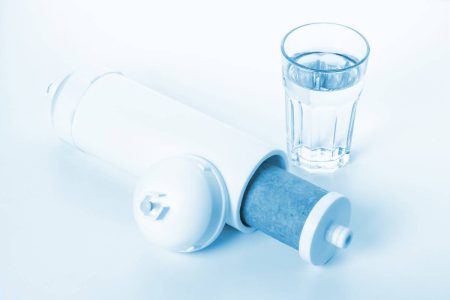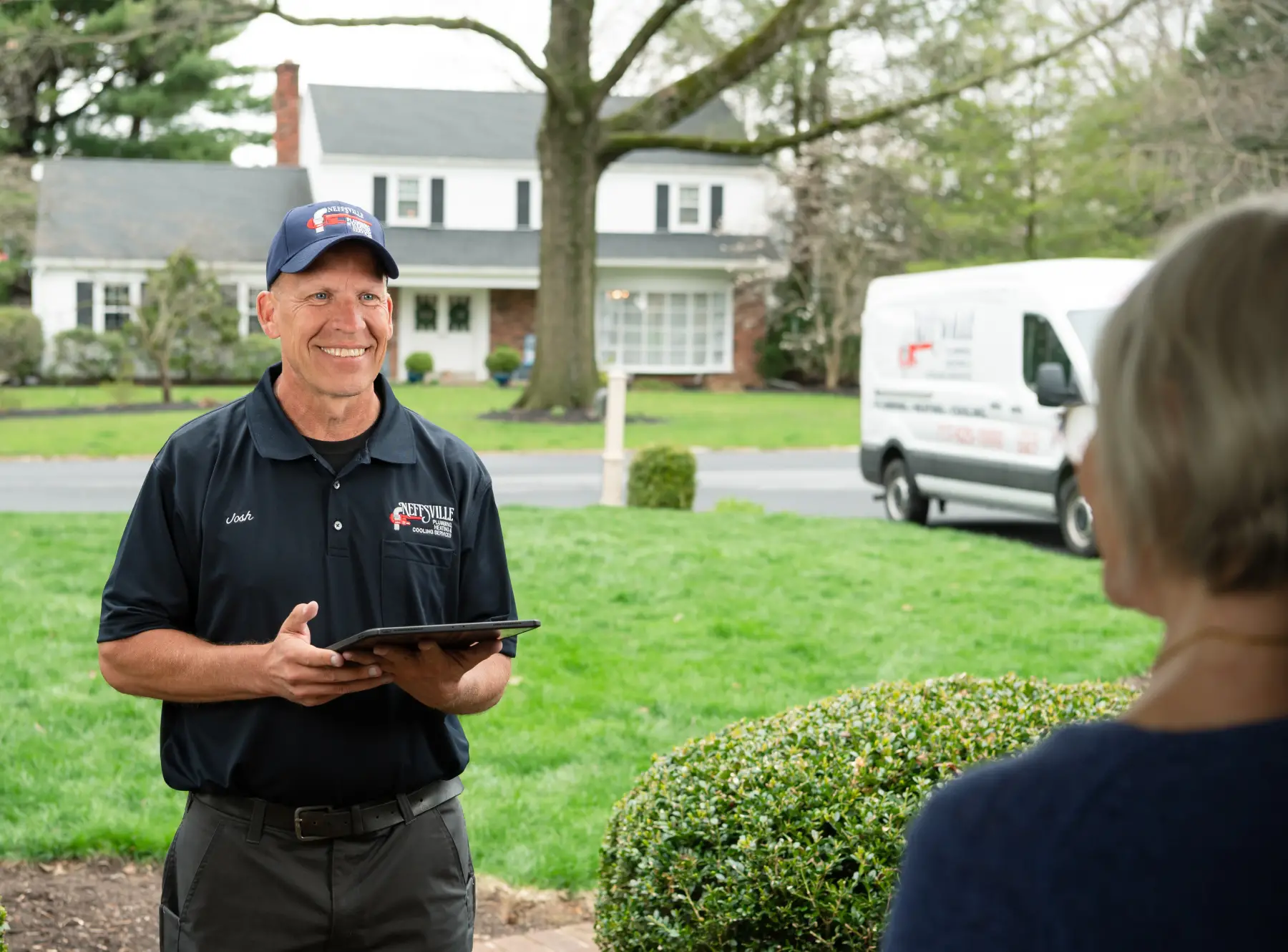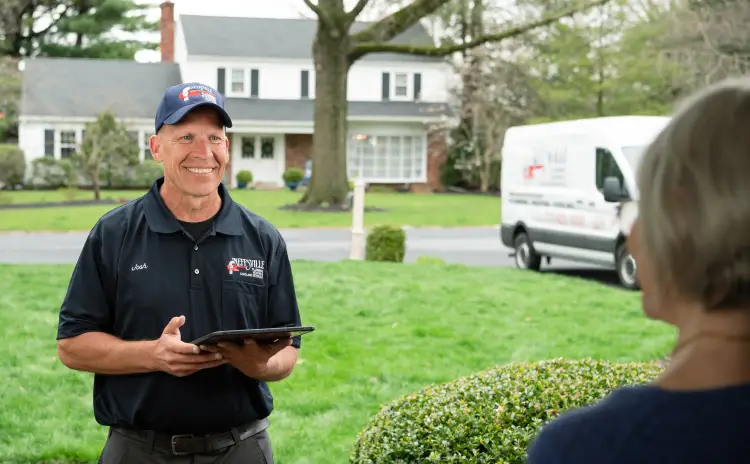Proudly Serving Lancaster, York, Cumberland, Dauphin & Lebanon Counties
Neffsville Plumbing is here with comprehensive water treatment solutions, including point-of-use and whole-home water filtration. These systems offer improved convenience for homeowners looking to simplify drinking water filtration by ensuring that clean, great-tasting water comes from every faucet in your home. As Lancaster County’s #1 plumbing company, we’re proud to offer superior service from highly-trained technicians. Plus, our upfront pricing allows you to budget properly.
Schedule water filtration installation for your Lancaster home by calling Neffsville Plumbing today.
Benefits of Whole-Home Water Filtration
A whole-home water filtration system is a smart investment for Lancaster homeowners thanks to the many benefits it offers, including:
- Improved water taste, odor, and appearance
- Healthier skin, hair, and more
- Added protection for plumbing and appliances
- Convenient, full-home coverage
- Reduced cost of plumbing repairs
- Environmental benefits of relying less on plastic bottled water
Common Water Quality Issues in York & Lancaster Counties

There are many regional issues that affect the water supply for Lancaster homeowners. By scheduling water testing with Neffsville Plumbing, we can help you determine the best option to handle common problems, including:
- Taste and odor issues: Because some of the local water comes from the Conestoga River, homeowners may notice musty or earthy odors and tastes that come from the algae blooms and snowmelt runoffs.
- Nitrate contamination: Lancaster has a large agricultural industry. The fertilizer and manure runoff from farms can elevate the nitrates in the local water source.
- Water hardness: Parts of Lancaster may have higher mineral content, which makes the water hard and, in turn, harsher on plumbing, skin, and more.
- Source water: Water supply from the Susquehanna and Conestoga Rivers can fluctuate due to storms, runoff, seasonal changes, and more.
Point-of-Use vs. Point-of-Entry Filtration
As you compare water filtration methods for your home, you’ll notice that water purifiers fall into two categories: point-of-use and point-of-entry filters.
Point-of-use filters are attached to a single fixture to filter the water you use there. They’re less expensive but limited — you’ll only have access to filtered water from a specific area in your home, like the kitchen sink. Your piping system might sustain damage without protection from the sediments a filter would remove. We recommend installing a POU filter if you’re only concerned about the water you drink and cook with, not bathwater or the water you use to wash clothes.
Point-of-entry filters are used in whole-home filtration systems. They’re installed where your main water line enters your home. This way, all the water in your home is filtered. They’re more expensive than POU filters, but can:
- Extend the service life of your appliances
- Prevent damage to pipes
- Eliminate the need for plastic water bottles
- Give you peace of mind knowing that the water flowing from every faucet is safe to use
Want to improve your home’s water quality? Schedule water filtration services by calling (717) 625-1000.
Types of Whole-Home Water Filtration Systems Available

Finding the right water filtration system for your home is key to ensuring the best quality water. At Neffsville Plumbing, we offer a variety of system types.
Iron Removal
Homeowners who struggle with rust stains or a metallic water taste may benefit from an iron removal filter. These filters oxidize iron in your water to turn it into solid iron that a physical filter can trap. As a result, you’ll see an improvement in water color and taste, while protecting pipes against clogs caused by iron deposits.
Bacteria Removal
Looking for added safety and peace of mind? A bacteria removal filter can provide just that. These systems use a variety of technologies like UV disinfection, chlorination, and reverse osmosis to protect your family against waterborne illnesses like E. coli, coliform, and Giardia.
Chlorine Removal
If you notice a chemical taste in your water or dryness and irritation in your skin and hair, your water may have too much chlorine. A chlorine removal filter uses activated carbon filters to attract and trap chlorine molecules to improve the overall quality of your drinking and bathing water.
Acid Neutralization
Water with a low pH can corrode plumbing, appliances, and water heaters. With an acid neutralization filter, homeowners can ensure their water is balanced and safe to drink. A neutralizing filter tank uses calcite or magnesium oxide to raise the pH to a neutral level.
Drinking Water Filtration Systems
Relying on bottled water for drinking is expensive, inconvenient, and harmful to the environment. Instead, consider a water filtration system for your drinking water to be more sustainable.
Reverse Osmosis
Reverse osmosis is a popular choice for homeowners looking to improve drinking water, as it results in better-tasting, healthier water. The system uses a semi-permeable membrane to remove solids, contaminants, and impurities from water, like minerals, heavy metals, nitrates, and more.
Two-Stage Drinking Water Systems
Get cleaner, better-tasting water for cooking and drinking with a two-stage drinking water system. These filtration systems use two separate filters to eliminate as many impurities as possible. The first is a sediment filter that captures larger particles. The second is an activated carbon filter that removes chemicals, pesticides, chlorine, and more.
Customized Filtration Solutions for Every Home
Improve the quality of the water in your Lancaster home today with the team at Neffsville Plumbing. For more than 80 years, homeowners have relied on our expert plumbers to provide quality water filtration systems with precise and professional installation. Trust our trained team to help you handle common problems in the area, including rust, iron, and hard water.
Schedule water filtration services today by calling Neffsville Plumbing.
Frequently Asked Questions
How do I know if I need a water filtration system?
What type of water filter is best for my home?
How often should filters be replaced?
Can Neffsville test my water quality?
Do filtration systems remove hard water minerals?








